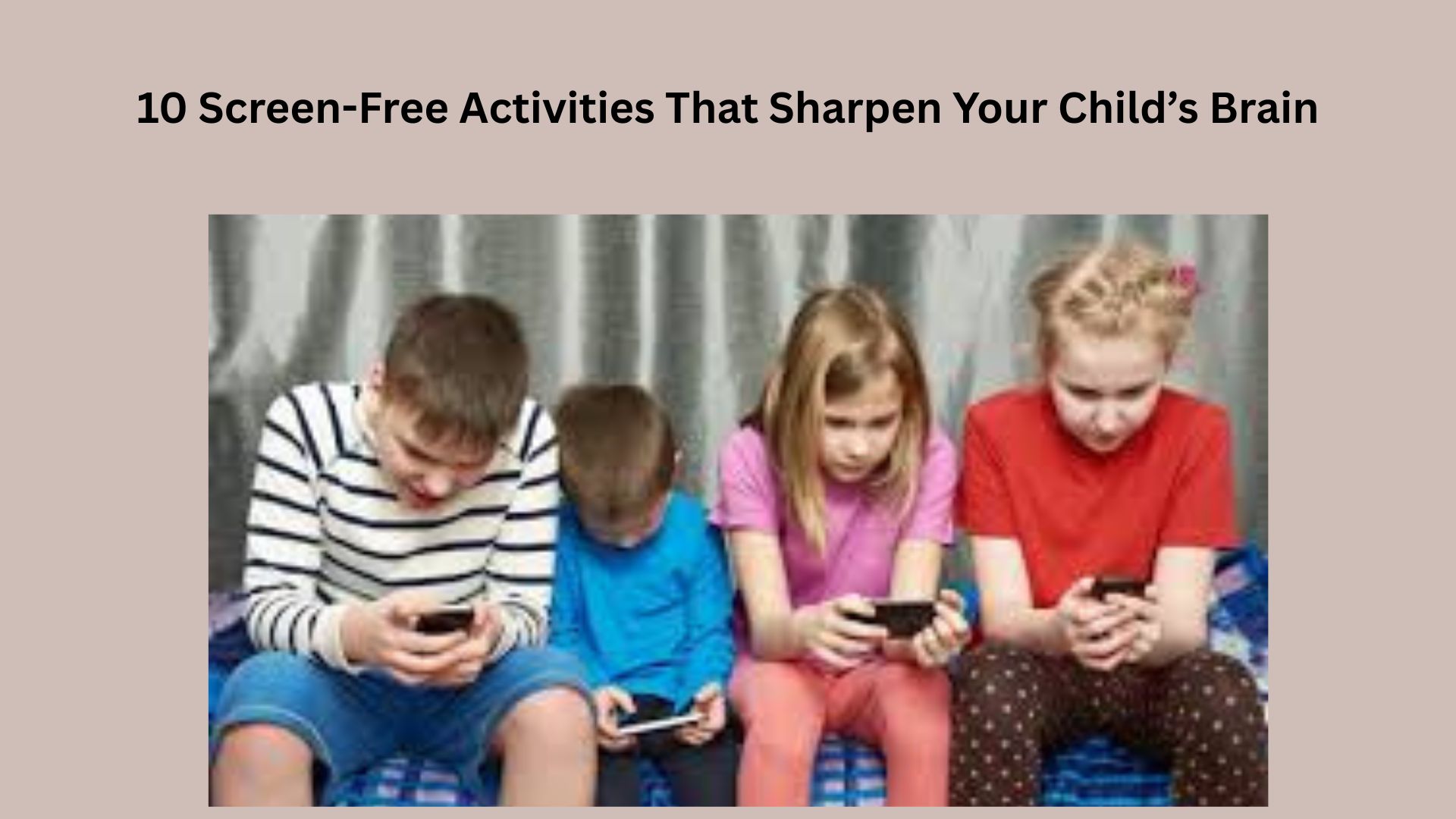10 Screen-Free Activities That Sharpen Your Child’s Brain

In this tech-saturated world, it’s simple for kids to spend hours in front of screens. Sure, educational apps and videos have their uses, but screen-free activities provide unparalleled advantages in cultivating creativity, concentration, memory, and problem-solving. Here are 10 easy, enjoyable, and effective ways to power up your child’s brain — no screen needed.

Reading for Pleasure
Reading regularly helps children build vocabulary, strengthen memory, and improve concentration. Let them pick stories they enjoy—whether it’s fantasy, mystery, or comics. Reading before bed can become a calming routine that also nurtures imagination.
Solving Puzzle
Jigsaw puzzles, Sudoku, and crosswords are fantastic for cognitive growth. They enhance spatial reasoning, patience, and problem-solving skills. Plus, they’re a great way to unwind as a family.
Construction with Blocks or LEGO
As kids construct towers, castles, or whatever they can imagine, they employ logic, spatial reasoning, and creativity. Free-form play such as this serves to develop the brain as well as motor skills.
Make-Believe and Role Play
Whether acting out house, establishing a pretend store, or making up characters, make-believe play constructs emotional intelligence, language skills, and communication. It’s also a great expressional outlet.
Nature Walks and Outdoor Play
Outdoor time sparks curiosity and observation. Leaf collecting, insect watching, or simply playing in the mud develops sensory acuity and attention span—all while decreasing stress.
Board Games That Teach
Board games such as Chess, Scrabble, Memory, or Uno all teach strategy, concentration, and decision-making. Even basic games necessitate turn-taking and rule-obedience—excellent for building self-regulation and social skills.
Creative Arts and Crafts
Drawing, painting, clay modeling, or paper cutting both develop fine motor skills and hand-eye coordination. Art also stimulates creativity, emotional expression, and critical thinking.
Cooking or Baking Together
Having your child assist in the kitchen assists with math (measuring), science (mixing, melting), and life skills. Reading recipes develops concentration, and hands-on involvement makes it a fun learning experience.
Memory and Matching Games
Card-matching, “Simon Says,” or memory games exercise attention and short-term memory. They are particularly enjoyable for young children and need minimal or no equipment.
Music and Rhythm Activities
Instrument lessons, clapping to music, or even creating rhythms using objects around the house enhance pattern recognition, memory, and auditory skills. Music also assists in language and coordination.
Final Thoughts
In a world where screens are everywhere, it’s easy to forget how powerful simple, hands-on experiences can be for a child’s brain. Screen-free activities are not just a break from technology—they are opportunities for real learning, deep thinking, and joyful creativity. Whether your child is building with blocks, exploring nature, solving puzzles, or reading a book, these experiences stimulate multiple areas of the brain in ways screens often can’t.
What makes these activities even more special is the human connection they foster. A shared game of chess, baking cookies together, or a walk through the park encourages bonding, conversation, and emotional growth. These moments strengthen family relationships while nurturing essential skills like focus, memory, problem-solving, and imagination.
It doesn’t take expensive toys or structured lessons to sharpen a child’s mind. A story, a board game, a simple craft—each has the power to ignite curiosity and build brainpower. So, as you plan your child’s week, remember to include some screen-free time filled with fun, learning, and creativity. In doing so, you’re not just entertaining them—you’re shaping stronger, more resilient, and more thoughtful minds for the future.




